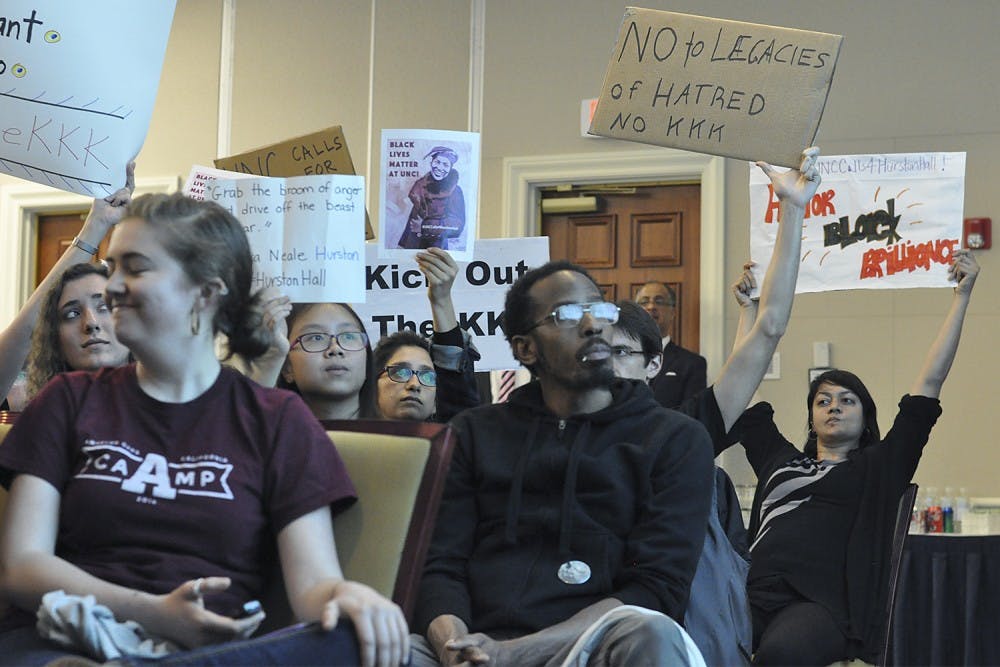“It’s so central to the preservation and strengthening of the nation as a whole and raised issues that we still have not completely resolved today,” said William Barney, a UNC history professor who’s an expert on the antebellum South.
The themes have arisen nationwide and across UNC’s campus in recent months — namely race relations and whether to recontextualize history.
UNC activists, particularly members of The Real Silent Sam Coalition, have protested the honoring of Civil War-era individuals on campus — including the naming of Saunders, Hamilton and Aycock buildings in honor of Ku Klux Klan supporters, as well as the protection of the Silent Sam statue, which pays homage to Confederate soldiers.
Chloe Griffin, a UNC senior, explained efforts to rename Saunders as an effort to contextualize history, rather than erasing it from memory.
Griffin said she finds few problems with culturally appropriate recognitions of the Civil War.
“You can remember your past without wanting to be like it,” she said. “I don’t have a problem with people wanting to commemorate the end of the Civil War as long as it’s not in some weird, romanticized way that diminishes that racism is still an issue.”
But reflecting on the anniversary of the surrender, Barney said he does not think any approach to remembering the Civil War and simultaneously being culturally sensitive could convey the nuances behind its history.
“It would have to be a response that would recognize the bravery and sacrifice of everyone who was caught up in the war,” Barney said.




